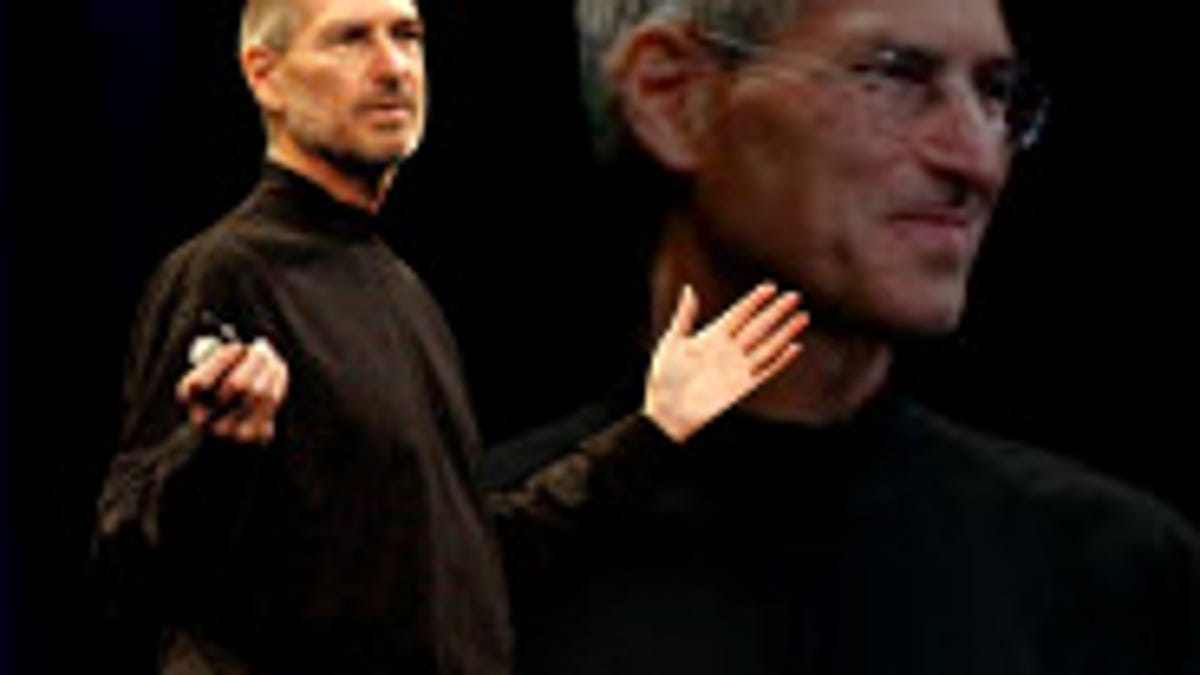New Yorker on Steve Jobs: More tweaker than inventor
Drawing on points made in Walter Isaacson's Steve Job bio, The New Yorker's Malcolm Gladwell paints a portrait of the late Apple leader as someone obsessed with tweaking things to perfection.

Following his death, Steve Jobs has been lauded by many as one of the world's most imaginative inventors. But a portrait of the Apple leader in The New Yorker paints him as more of a tweaker on a never-ending quest for perfection.
In a column for the magazine's new issue, the New Yorker's Malcolm Gladwell relates several stories from Walter Isaacson's bio as evidence that Jobs' real contribution was zeroing in on an existing item, no matter how minute, and refining it until it fit his vision of perfection.
Jobs forced the designers of the original Mac to redo the title bars at the top of windows about 20 times until he was satisfied, telling them that "it's not just a little thing. It's something we have to do right." He spent time and money refining his factory at NeXT to ensure that the walls were pure white and that the assembly line moved from right to left so that visitors would have a better view of the process.
He debated with his advertising agency over the use of the term "Think Different," arguing over both its grammar and meaning. He fought with the copywriter who wrote the first commercials for the iPad, telling him that the ads sucked. When the writer said that Jobs had failed to tell him exactly what he wanted, Jobs couldn't provide an answer and simply said, "I'll know it when I see it."
The search for perfection also consumed Jobs' personal life. He was known to have sparsely-furnished homes because he couldn't decide on the right furniture. He spent weeks debating and discussing the choice of a washing machine with his wife and family. Even when he was dying in the hospital, he ran through 67 nurses before finding a few that he liked.
Aside from his personal life, was Jobs' constant tweaking of technology truly evidence of an innovative and creative mind? Is a "tweaker" any less critical than an "inventor?" Citing research done this year by two economists, Gladwell says that the type of tweaking done by Jobs is "essential to progress."
For example, James Watt created the modern steam engine, which doubled the efficiency of previous engines. But when other people tweaked the steam engine, efficiency improved fourfold. Samuel Crompton invented the spinning mule to speed up the process of producing cotton. But other men tweaked the design to truly automate and perfect Crompton's original invention.
But Jobs' question for perfection could also lead him down a limited path. As Isaacson's bio recounts, Jobs criticized colleague and competitor Bill Gates for being unimaginative and ripping off other people's ideas, one reason "why he's more comfortable now in philanthropy than technology.
However, Gladwell sees a bit things differently.
"It's true that Gates is now more interested in trying to eradicate malaria than in overseeing the next iteration of Word," he wrote. "But this is not evidence of a lack of imagination. Philanthropy on the scale that Gates practices it represents imagination at its grandest. In contrast, Jobs' vision, brilliant and perfect as it was, was narrow. He was a tweaker to the last, endlessly refining the same territory he had claimed as a young man."

